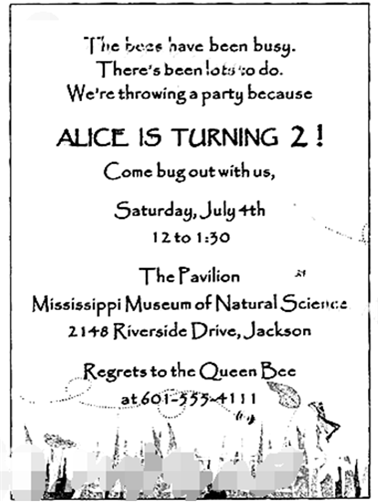6.Like many new graduates,I left university full of hope for the future but with no real idea of what I wanted to do.My degree,with honors,in English literature had not really prepared me for anything practical.I knew I wanted to make a difference in the world somehow,but I had no idea how to do that.That's when I learned about the Lighthouse Project.
I started my journey as a Lighthouse Project volunteer by reading as much as I could about the experiences of previous volunteers.I knew it would be a lot of hard work,and that I would be away from my family and friends for a very long time.In short,I did not take my decision to apply for the Lighthouse Project lightly.Neither did my family.
Eventually,however,I won the support of my family,and I sent in all the paperwork needed for the application.After countless interviews and presentations,I managed to stand out among the candidates and survive the test alone.Several months later,I finally received a call asking me to report for the duty.I would be going to a small village near Abuja,Nigeria.Where?What?Nigeria?I had no idea.But I was about to find out.
After completing my training,I was sent to the village that was small and desperately in need of proper accommodation.Though the local villagers were poor,they offered their homes,hearts,and food as if I were their own family.I was asked to lead a small team of local people in building a new schoolhouse.For the next year or so,I taught in that same schoolhouse.But I sometimes think I learned more from my students than they did from me.
Sometime during that period,I realized that all those things that had seemed so strange or unusual to me no longer did,though I did not get anywhere with the local language,and returned to the United States a different man.The Lighthouse Project had changed my life forever.
36.What do we know about the authorA?
A.His university education focused on the theoretical knowledge.
B.His dream at university was to become a volunteer.
C.He took pride in having contributed to the world.
D.He felt honored to study English literature.
37.According to the Project Lighthouse,it is likely that the authorA
A.Discussed his decision with his family.
B.Asked previous volunteers about voluntary work
C.Attended special training to perform difficult tasks
D.Felt sad about having to leave his family and friends
38.In his application for the volunteer job,the authorD.
A.Participated in many discussions
B.Went through challenging survival tests
C.Wrote quite a few paper on voluntary work
D.Faced strong competition from other candidates
39.On arrival at the village,the author wasC.
A.Asked to lead a farming team
B.Sent to teach in schoolhouse
C.Received warmly by local villagers
D.Arranged to live in a separate house.
40.What can we infer from the author's experiences in NigeriaA?
A.He found some difficulty adapting to the local culture
B.He had learned to communicate in the local language.
C.He had overcome all his weakness before he left for home.
D.He was chosen as the most respectable teacher by his students.
分析 文章大意:本文是一篇記敘文.?dāng)⑹隽俗髡呱暾埥凶鰺羲媱澋闹驹刚吖ぷ鞯倪^程和被選作志愿者后去阿布加附近的一個小村莊工作的經(jīng)歷.作者大學(xué)畢業(yè)后,報名參加了燈塔項目活動,經(jīng)過激烈的競爭,他被選中了.然后,他被送到尼日利亞的一個村莊.他一到達那兒就開始帶領(lǐng)當(dāng)?shù)厝私ㄐI幔缓蟮诙暝谀撬鶎W(xué)校教書.他在尼日利亞學(xué)到很多東西,所以他說燈塔項目永遠改變了他的人生.
解答 36.A 細節(jié)理解題.由第一段第二句"My degree,with honors,in English literature had not really prepared me for anything practical"可知,作者的大學(xué)教育注重的是理論知識,選A. 37.A 推理判斷題.由第二段最后一句In short,I did not take my decision to apply for the Lighthouse Project lightly.Neither did my family(總之,我并不是輕易決定申請燈塔計劃的,我的家人也一樣不是輕易決定的)和第三段首句Eventually,however,I won the support of my family(然而,最后我贏得了家人的贊同)可以推斷出,作者是同家人討論商量過的.故選擇A.
38.D 推理判斷題.本題使用排除法.由第二段的第二句"After countless interviews and presentations,I managed to stand out among the candidates and survive the test alone"可推知,作者面臨了與其他候選人的激烈競爭.選項A"參加了許多討論",文中無信息支持,是無中生有,應(yīng)排除;選項B"經(jīng)歷了富有挑戰(zhàn)性的生存測試",特別是由survival可知,編題者利用了文中的只言片語(survive,test),編造與文中不符的信息,迷惑考生,應(yīng)排除;選項C"寫了相當(dāng)多的有關(guān)志愿者工作的論文"與文中"sent in all the paperwork needed for the application(呈送申請所需要的文書)"不符,應(yīng)排除.故選D.
39.C 細節(jié)理解題.由第四段Though the local villagers were poor,they offered their homes,hearts,and food as if I were their own family可知,一到達這個村莊時,他受到村民的熱情接待,故選C.文中信息具體,正確選項是對其概括.
40.A 推理判斷題.由最后一段第一句all those things that had seemed so strange or unusual to me no longer did(他當(dāng)初覺得奇怪或不尋常的所有事現(xiàn)在都不再覺得奇怪了)可推斷,已適應(yīng)了,但當(dāng)初不適應(yīng)時要適應(yīng)這些,是有困難的,故選A.
點評 (1)吃透文章的字面意思,從字里行間捕捉有用的提示和線索,這是推理的前提和基礎(chǔ).
(2)對文字的表面信息進俐宅掘加工,由表及里,由淺入深.從具體到抽象,從特殊到一般,通過分析、綜合、判斷等進行符合邏輯的推理.不能就事論事,斷章取義,以偏概全.
(3)基于文章內(nèi)容,以文章提供的事實和線索為依據(jù),立足已知,推斷未知.不能主觀臆想,憑空想象,隨意揣測,更不能以自己的觀點代替作者的觀點.



 期末金牌卷系列答案
期末金牌卷系列答案 輕松課堂標(biāo)準(zhǔn)練系列答案
輕松課堂標(biāo)準(zhǔn)練系列答案